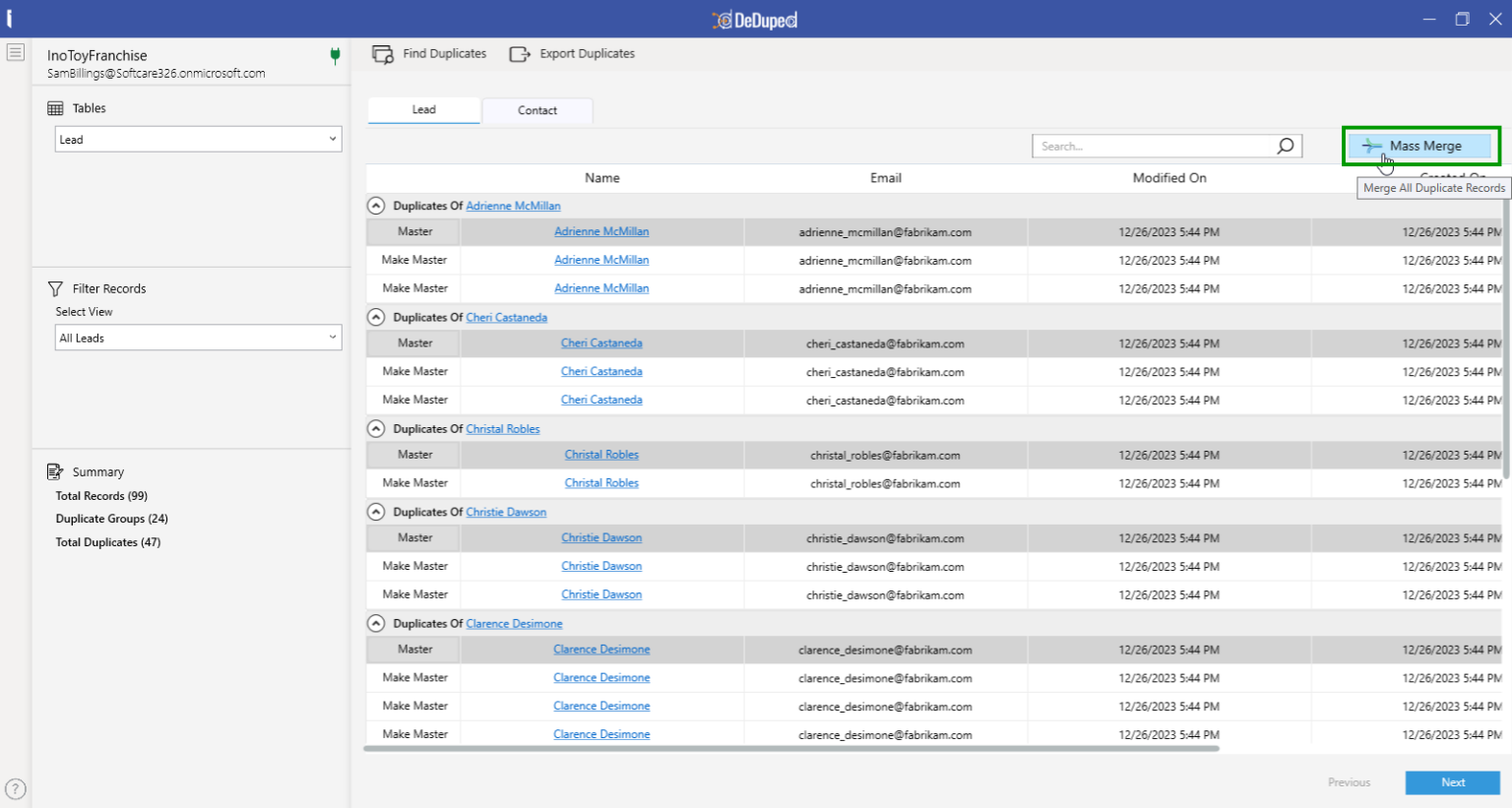
CRM with Smart Contact Deduplication: The Key to Data Integrity and Customer Satisfaction
In the fast-paced world of modern business, Customer Relationship Management (CRM) systems have become indispensable tools for managing customer interactions, streamlining sales processes, and enhancing overall customer satisfaction. However, the effectiveness of a CRM system hinges on the quality of the data it holds. One of the most common and insidious threats to CRM data quality is duplicate contacts. These duplicates can lead to a host of problems, from wasted marketing efforts to frustrated customers. This is where CRM with smart contact deduplication comes into play, offering a sophisticated solution to maintain data integrity and optimize customer relationships.
The Peril of Duplicate Contacts in CRM
Duplicate contacts in a CRM system occur when the same individual or company is represented multiple times in the database. This can happen for various reasons, including:
- Manual Entry Errors: Sales representatives or customer service agents may inadvertently create duplicate records when entering information manually. Typos, variations in names, or incomplete data can all contribute to the problem.
- Data Imports: Importing data from multiple sources, such as spreadsheets, email lists, or other CRM systems, can introduce duplicates if the data is not properly cleansed and matched.
- Web Forms and Online Interactions: When customers fill out web forms or interact with a company through online channels, their information may be captured multiple times, leading to duplicate entries.
- System Integrations: Integrating CRM with other business systems, such as marketing automation platforms or accounting software, can also result in duplicate contacts if the data synchronization process is not carefully managed.
The consequences of having duplicate contacts in a CRM system can be far-reaching and detrimental to a company’s operations:
- Wasted Marketing Efforts: Sending the same marketing message to the same person multiple times can be annoying for customers and a waste of resources for the company. Duplicate contacts inflate marketing metrics, making it difficult to assess the true effectiveness of campaigns.
- Inaccurate Sales Forecasting: Duplicate leads and opportunities can skew sales forecasts, leading to poor decision-making and resource allocation. Sales teams may spend time pursuing leads that are already being worked on by others.
- Poor Customer Service: When customer service agents have to sift through multiple records to find the correct customer information, it can lead to delays and frustration. Customers may feel like they are not being recognized or valued.
- Data Integrity Issues: Duplicate contacts compromise the overall integrity of the CRM data, making it difficult to trust the information and use it for accurate reporting and analysis.
- Increased Storage Costs: Storing duplicate data consumes valuable storage space, adding to the overall cost of maintaining the CRM system.
Smart Contact Deduplication: A Proactive Solution
Smart contact deduplication is a process of identifying and merging or removing duplicate contact records in a CRM system. Unlike basic deduplication tools that rely on exact matches of specific fields, smart deduplication uses sophisticated algorithms and machine learning techniques to identify duplicates based on a variety of factors, including:
- Fuzzy Matching: Smart deduplication can identify duplicates even when there are slight variations in names, addresses, or email addresses. For example, it can recognize that "John Smith" and "Jon Smith" are likely the same person.
- Phonetic Matching: This technique identifies duplicates based on how names sound, even if they are spelled differently. For example, it can recognize that "Catherine" and "Katherine" are likely the same person.
- Email Domain Matching: Smart deduplication can identify duplicates based on the email domain, even if the individual email addresses are different. For example, it can recognize that "john.smith@example.com" and "jane.doe@example.com" may be related if they both work for the same company.
- Address Matching: This technique identifies duplicates based on the physical address, even if there are variations in the street name or number.
- Customizable Rules: Smart deduplication tools allow users to define custom rules for identifying duplicates based on their specific business needs. For example, they can specify that two contacts are considered duplicates if they have the same phone number and email address.
Benefits of CRM with Smart Contact Deduplication
Implementing CRM with smart contact deduplication offers a wide range of benefits for businesses:
- Improved Data Quality: By eliminating duplicate contacts, smart deduplication ensures that the CRM data is accurate, reliable, and up-to-date.
- Enhanced Marketing Effectiveness: With clean and accurate contact lists, marketing campaigns can be targeted more effectively, leading to higher engagement rates and better ROI.
- Accurate Sales Forecasting: By eliminating duplicate leads and opportunities, smart deduplication provides a more accurate view of the sales pipeline, enabling better forecasting and resource allocation.
- Improved Customer Service: With access to a single, unified view of each customer, customer service agents can provide faster, more personalized service.
- Increased Efficiency: By automating the deduplication process, smart deduplication saves time and effort for sales, marketing, and customer service teams.
- Reduced Costs: By eliminating wasted marketing efforts and improving operational efficiency, smart deduplication can help reduce costs across the organization.
- Better Decision-Making: With access to accurate and reliable data, business leaders can make more informed decisions about sales, marketing, and customer service strategies.
- Enhanced Compliance: Maintaining accurate and up-to-date contact information is essential for complying with data privacy regulations such as GDPR and CCPA.
Implementing CRM with Smart Contact Deduplication
Implementing CRM with smart contact deduplication involves several key steps:
- Choose the Right CRM System: Select a CRM system that offers built-in smart contact deduplication capabilities or integrates with a third-party deduplication tool.
- Define Deduplication Rules: Work with your CRM vendor or deduplication tool provider to define the rules for identifying duplicates based on your specific business needs.
- Cleanse Existing Data: Run the deduplication process on your existing CRM data to identify and merge or remove duplicate contacts.
- Automate Deduplication: Configure the CRM system or deduplication tool to automatically identify and prevent duplicate contacts from being created in the future.
- Train Users: Train sales, marketing, and customer service teams on the importance of data quality and how to avoid creating duplicate contacts.
- Monitor Data Quality: Regularly monitor the CRM data for duplicates and other data quality issues, and take corrective action as needed.
- Integrate with Other Systems: Ensure that the CRM system is properly integrated with other business systems to prevent duplicate contacts from being introduced through data synchronization.
Conclusion
CRM with smart contact deduplication is a critical component of any successful CRM strategy. By eliminating duplicate contacts and maintaining data integrity, it enables businesses to improve marketing effectiveness, enhance sales forecasting, provide better customer service, and make more informed decisions. Implementing CRM with smart contact deduplication requires careful planning, the right tools, and ongoing monitoring, but the benefits are well worth the effort. In today’s data-driven world, accurate and reliable CRM data is essential for building strong customer relationships and achieving sustainable business growth.

